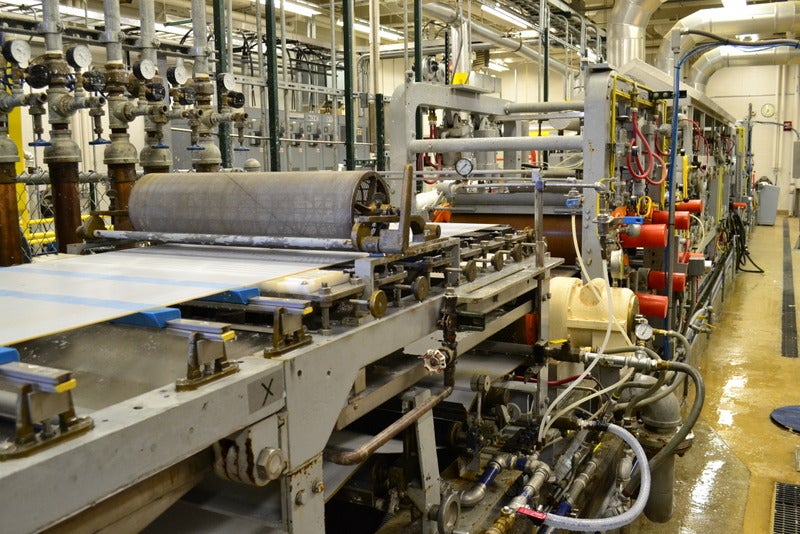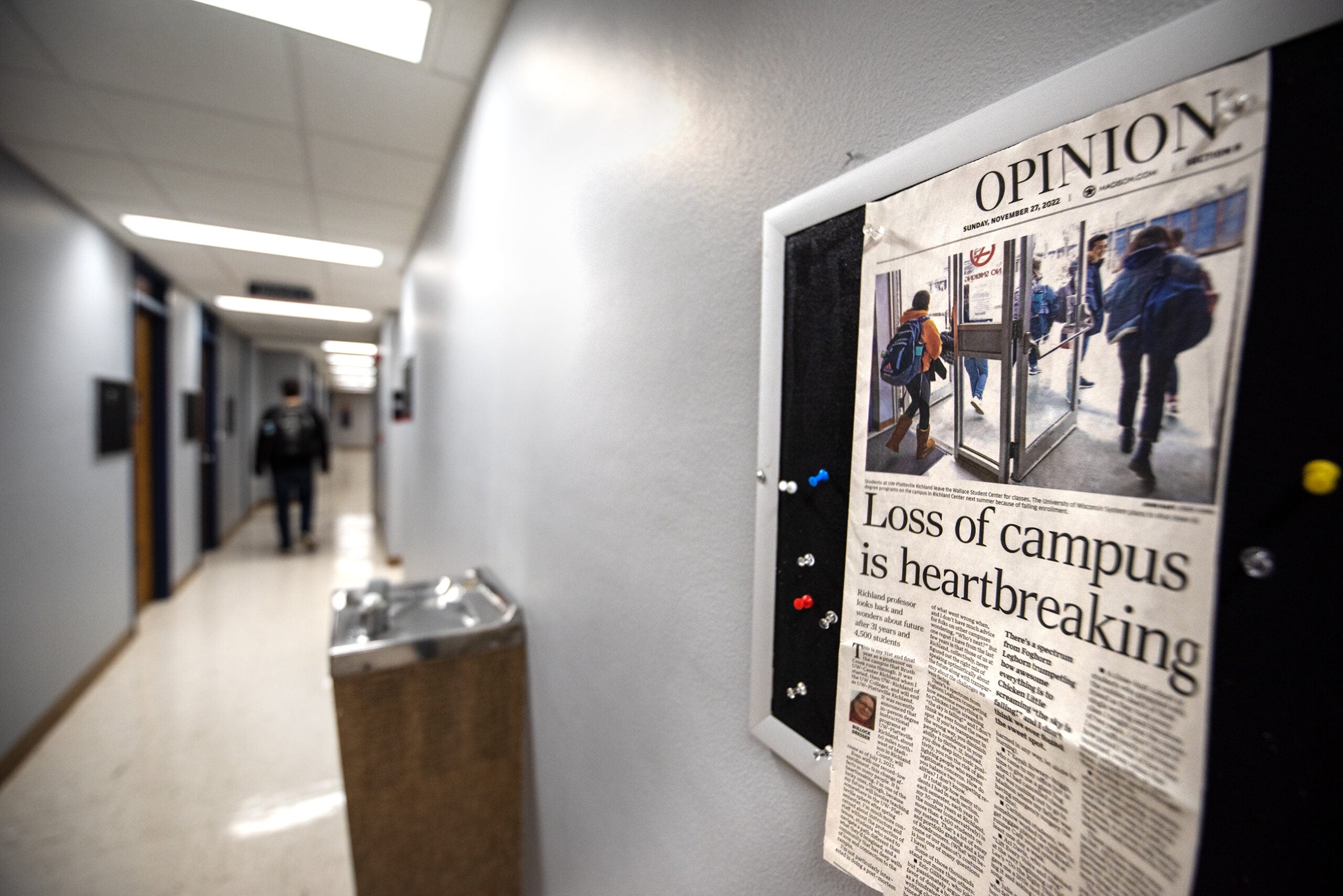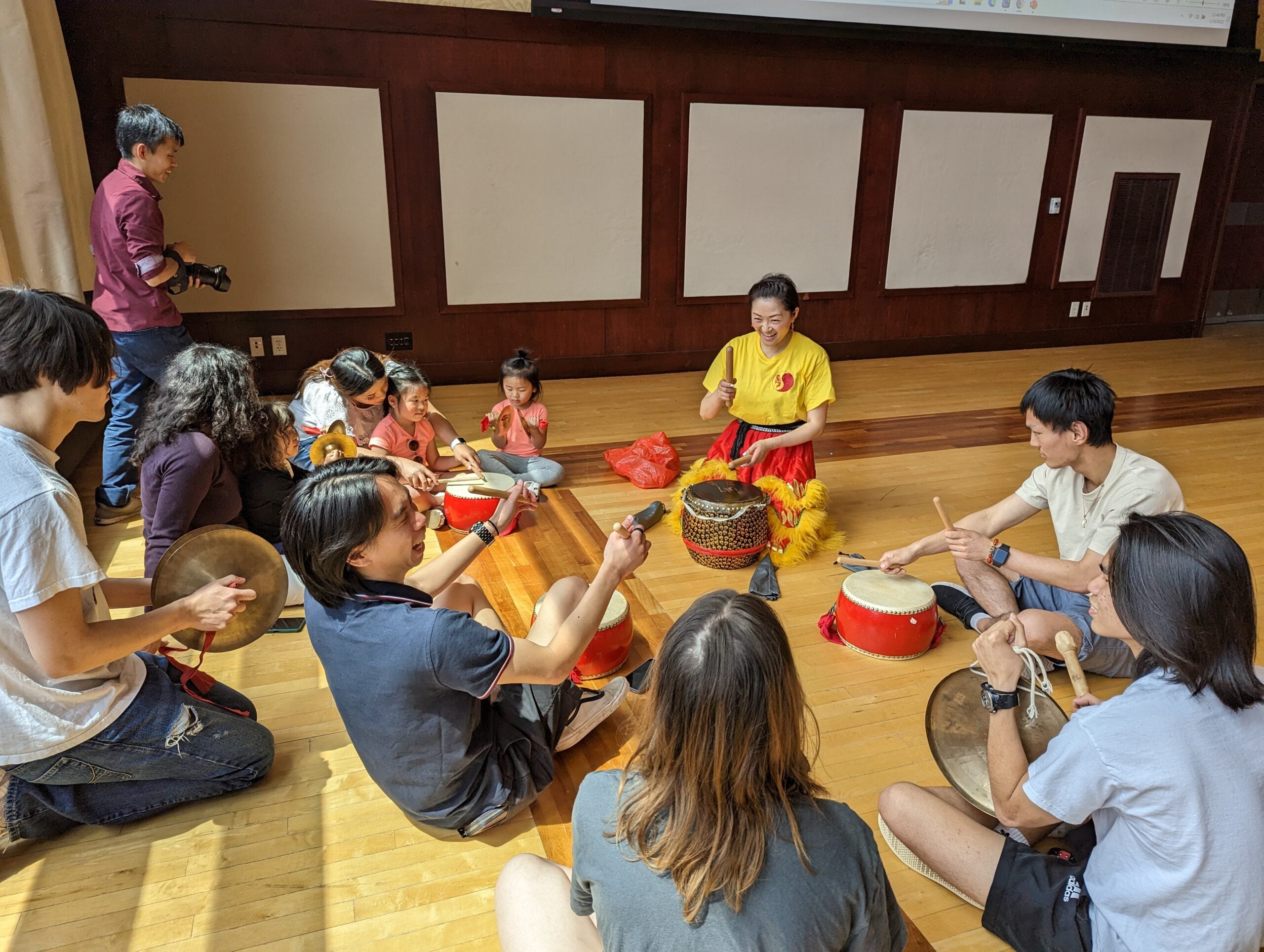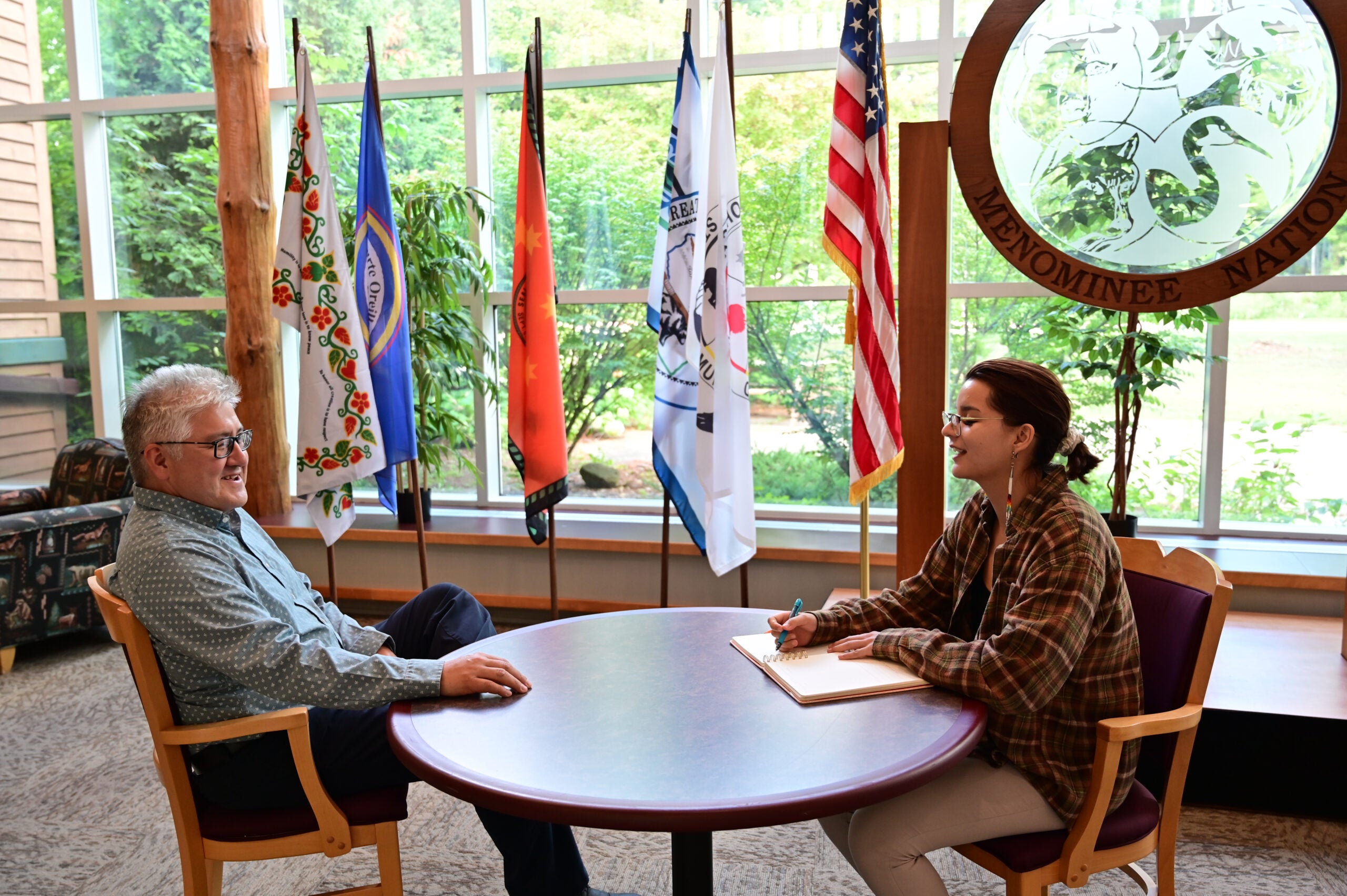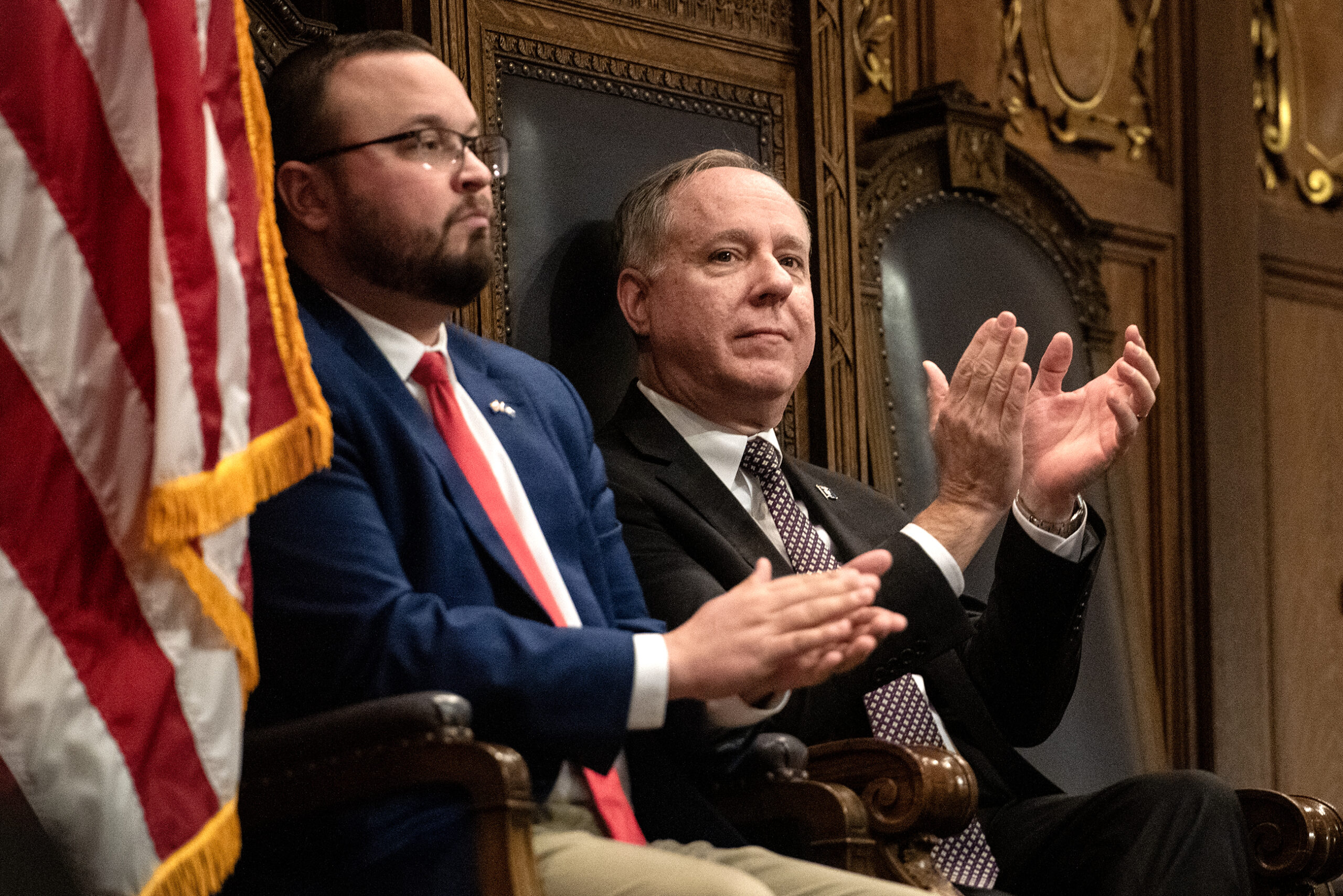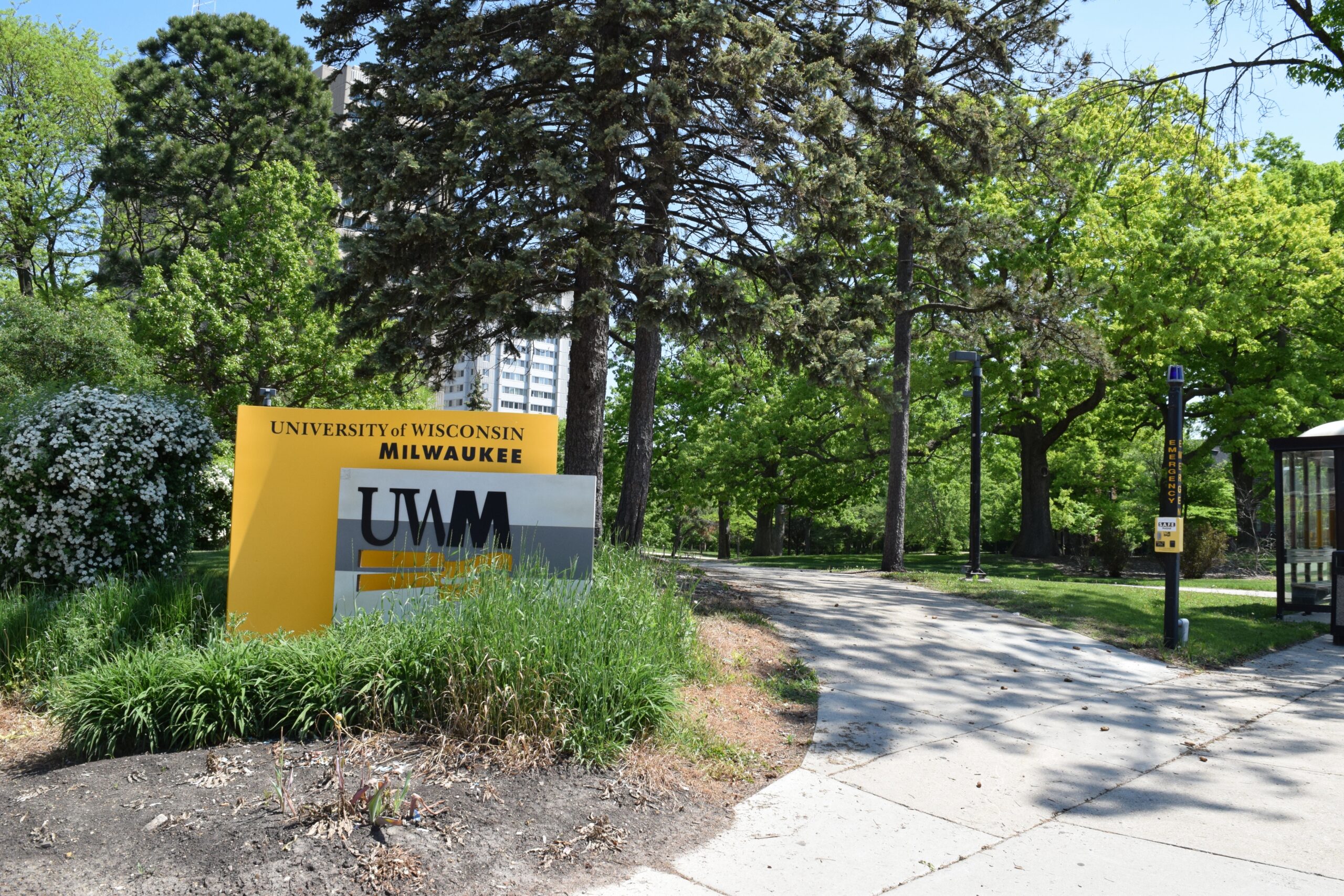The University of Wisconsin-Stevens Point is being hit particularly hard by the governor’s proposed budget cuts to the UW System. School officials point to the elimination of entrepreneurial research in so-called segregated programs as one of the toughest hurdles.
Lab specialist Lindsey Hoffmann operates the machine. Glen Moberg/WPR.
UW-Stevens Point is well know for its natural resources program Glen Moberg/WPR.
News with a little more humanity
WPR’s “Wisconsin Today” newsletter keeps you connected to the state you love without feeling overwhelmed. No paywall. No agenda. No corporate filter.
UW-Stevens Point will lose $1.4 million dollars for the segregated programs —budget items that are funded by fees instead of general tax revenue. Add to that $8.2 million in other cuts, and the school is being hit harder than any other campus, according to Chancellor Bernie Patterson.
“Our cut to our state support is 25 percent, the highest of any of the universities in the system,” Patterson said. “We will have fewer people working here, maybe as many as 115 positions.”
The segregated program cuts include entrepreneurial partnerships, like the Aquaculture Demonstration Facility in Bayfield. Patterson said the research being done there could help feed a hungry world.
“Fish farming, if you will, (creates) new breeds of fish that will grow to market size more quickly,” said Patterson. “It’s going to have a huge impact in not only feeding the people in Wisconsin and this country but worldwide.”
Other segregated program cuts affect the Wisconsin Institute for Sustainable Technology, run by the university’s College of Natural Resources.
“We have the largest student-run papermaking machine in the country,” Patterson said. “The cut includes eliminating the operator of that machine, the one who trains the students.”
Lab specialist Lindsey Hoffmann operates the machine, which fills an entire room. She said not only does it roll out high-quality commercial paper, but having the facility on campus gives students real life experience.
“We bring in contract work from all over the world, paper-testing, biofuels, chemical analysis,” Hoffman said. “The paper science program boasts 100 percent job placement within the first six months after graduation.”
And that’s the irony, according to College of Natural Resources Dean Christine Thomas. Why cut programs that are so good at placing students in jobs?
“Every student that graduates from the program is employed,” she said. “And mostly they go out in their first job and make more money than their professors.”
Thomas said the college will find a way to keep the paper machine running, but she said there are other segregated program cuts, including a world-renowned initiative to teach women outdoor skills.
“The international Becoming an Outdoors-Woman program, that’s in 44 states, five Canadian provinces,” she said.
Thomas also pointed to the Wisconsin Bioenergy Initiative, a research program that she said may be a key to America’s energy independence.
During a recent lecture, professor Malek Alkasrawi showed his students computer models that could help produce the biofuels of tomorrow.
“The main problem in biofuel, it’s the process cost. It’s the money. It’s all about economics,” Alkasrawi said. “Without doing research, we will not be able to solve the problem of the cost.”
University officials argue these segregated programs have reinforced UW-Stevens Point’s reputation as a leading natural resources school. The potential loss of them is troubling to students like Lee Bartnik.
“This is huge, because this is a lot of our practical experience,” Bartnik said. “We’re in the process of trying to rally, get our voices out there, so hopefully we can make a difference. To be honest, I’m more skeptical than hopeful.”
But Natural Resources Dean Christine Thomas and Chancellor Bernie Patterson said they are hopeful that somehow they will be able to maintain their university’s world-class reputation.
“When the dust settles on this, we will continue to be the best college of natural resources in the universe,” said Thomas.
“These are challenging times,” said Patterson. “We’re going to meet the challenge. We’re going to think about things differently. And we’re going to make it work.”
That said, Patterson is asking lawmakers to reduce the cuts.
Wisconsin Public Radio, © Copyright 2025, Board of Regents of the University of Wisconsin System and Wisconsin Educational Communications Board.

